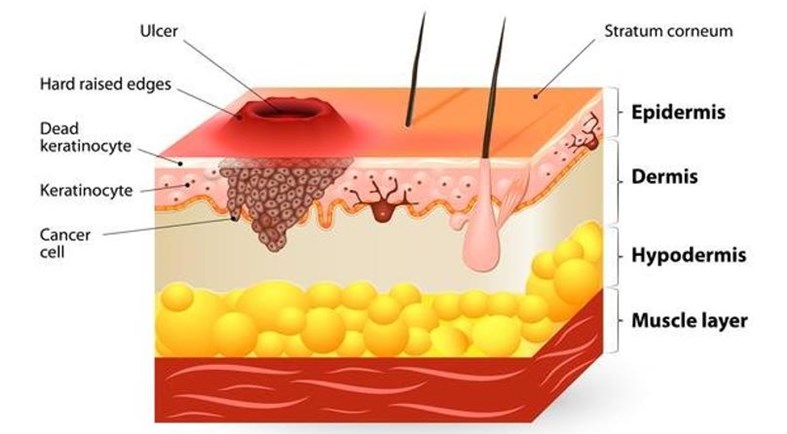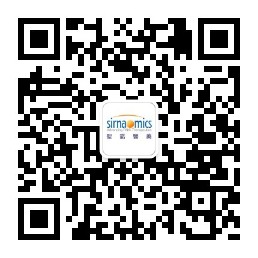Sirnaomics Reports Positive Data from Phase Ⅱa Study of STP705 for Treatment of Squamous Cell Skin Cancer
Sirnaomics, Inc., a biopharmaceutical company engaged in the discovery and development of RNAi therapeutics against cancer and fibrotic diseases, today announced positive efficacy and safety results from a Phase 2a clinical study of the company’s lead drug candidate, STP705, for treatment of squamous cell skin cancer.
The open label, dose escalation study was designed to evaluate the efficacy and safety of intralesional injection of STP705 in adult patients with cutaneous squamous cell carcinoma in situ (isSCC, Bowen’s disease), confirmed with biopsy samples. The objective was to determine the safe and effective recommended dose of STP705 for the treatment of isSCC, as well as to analyze biomarkers common to isSCC formation pathways including TGF-β1 and COX-2. The trial was comprised of five dose escalation cohorts ranging from 10 μg to 120 μg with five patients in each group, and a total of 25 patients were enrolled in the trial. Participants received injections of STP705 once a week for up to six weeks.
The primary endpoint of this trial was to evaluate patients for complete histological clearance of the tumor cells within the treated isSCC lesion. Based upon the analysis of the five groups, a clear dosage-dependent efficacy curve was observed with 76% of all patients (19/25) achieving the complete histologically clearance. The two optimal dosing ranges achieved 90% histological clearance of tumor cell in the lesion. The study showed promising results of key secondary endpoints. There were no significant investigational product treatment related adverse events, as well as no serious adverse events, reported in the study. Of particular importance is the fact that no significant cutaneous skin reactions were noted in the treatment groups, and the company was able to define a clear therapeutic window.
An exploratory immunohistochemistry analysis was also conducted on the pre- and post-treatment tissues from the clinical trial, to obtain evidence of the mechanism of action of this novel RNA therapeutic candidate. The analysis reported significant inhibition of the target gene, TGF-β1 and COX-2, and expression and down regulation of several key cancer related biomarkers (including Ki67, NF-kB, β-Catenin). Moreover, an increased infiltration of CD8+ and CD4+ T cells was observed in the treated tumor lesion which supports the role of TGF-β1.
“This marks a significant milestone as evidenced by the number of patients treated with STP705 for squamous cell skin cancer achieving the primary endpoint in a dose dependent manner,” said Patrick Lu, Ph.D., the founder, President and CEO of Sirnaomics. “The readout not only demonstrates the potential of RNAi therapeutics in oncology, but also illustrates the safety and efficacy of polypeptide nanoparticle formulation of siRNA therapeutics. In addition, the positive gene silencing data validates TGF-β1 and COX-2 as important cancer drug targets and our dual-targeting strategy for novel RNAi cancer therapeutics. This successful clinical study result indicates that Sirnaomics is leading the charge in using RNAi drugs for anticancer therapeutics.”
“This is a landmark study for Sirnaomics as we were able to achieve high rates of histological clearance, which is the gold standard for skin cancer. This was combined with an excellent safety profile and a lack of local cutaneous skin reactions, which is very important to both patients and clinicians as they look for alternatives to surgical excision of these lesions,” said Michael Molyneaux M.D., Sirnaomics Chief Medical Officer. “The fact that we were able to demonstrate target gene knockdown along with reduction in important downstream biomarkers makes the results more impactful as we advance into later stage trials and prepare for potential commercialization. Sirnaomics would like to acknowledge the great work of The Center for Clinical and Cosmetic Research™ (CCCR), under the direction of Mark S. Nestor, M.D., Ph.D., and Brian Berman, M.D., Ph.D.
“The promise of a non-surgical, non-invasive treatment for this common non-melanoma skin cancer is a major therapeutic advancement for patient care. We have observed a high rate of clinical clearance that was dose dependent with no significant treatment related adverse events and no serious adverse events. The mechanism of action also holds significant promise in the treatment of other skin cancers as well as non-cancerous lesions. We look forward to the continuing work on this promising new therapy,” said Dr. Nestor.
Based on the results of the STP705 Phase 2a trial, Sirnaomics intends to initiate a Phase 2b trial of STP705 in patients with isSCC, as well as clinical studies during the first half of 2021 for additional indications: superficial basal cell carcinoma, hypertrophic scar, keloid scarless healing and liver cancers. Detailed study results, including additional secondary endpoints, histology and biomarker details, will be submitted for presentation at upcoming medical meetings and for publication.
Additional information about this clinical trial is available at clinicaltrials.gov using the identifier: NCT04293679.
Squamous Cell Carcinoma

About Non-melanoma Skin Cancer and Squamous Cell Carcinoma In Situ
Skin cancer is the most common type of all cancers diagnosed each year in the United States. It is estimated that nearly half of cancers diagnosed every year will be skin cancers. Over the past decade, the incidence of skin cancers has increased dramatically. According to the JAMA Dermatology paper (Rogers, et. al. JAMA Dermatol. 2015151(10):1081-1086), an estimated 3.3 million people in the US suffer from non-melanoma skin cancer (NMSC) along with 5.43 million people that are currently living with cancer lesions. Data on specific types of NMSC were 2.55 million cases for basal cell carcinoma (47%): 2.57 million cases for squamous cell carcinoma including squamous cell carcinoma in situ (46.7%), plus another 332,000 cases of unspecified type of skin cancers.
A World Health Organization authorized report from “International Agency for Research on Cancer” (2019) has demonstrated that the number of deaths in 2018 globally for both men and women from NMSC is 65,155, where the mortality of Asia NMSC patients represents 41.9% of the global total, significantly more than other individual areas.
Squamous cell carcinoma in situ, also called Bowen disease, is the earliest form of squamous cell skin cancer (SCC). Along with basal cell carcinoma, SCC is one of two major subtypes of NMSC. The key driver for development of SCC is ultraviolet rays from the sun. It is believed that development of SCC is linked closely to genomic perturbations, genetic mutations, and altered expression of key molecules (e.g., overexpression of TGF-β1 and COX-2) that impacts squamous cell lineage commitment and terminal differentiation.
Surgery is the currently the most common treatment option for the treatment of NMSC. The various forms of surgical modalities carry significant cutaneous adverse events, risk of scar, infection and bleeding. Surgery can also have a significant recurrence rate. As a result, there is a high unmet need for an FDA approved local injection therapy that is safe and effective.
About STP705
Sirnaomics’ leading product candidate, STP705, is a siRNA (small interfering RNA) therapeutic that takes advantage of a dual-targeted inhibitory property and polypeptide nanoparticle (PNP)-enhanced delivery to directly knock down both TGF-β1 and COX-2 gene expression. The product candidate has received multiple IND approvals from both the US FDA and Chinese NMPA, including treatments of cholangiocarcinoma, non-melanoma skin cancer and hypertrophic scar. STP705 has also received Orphan Drug Designation for treatment of cholangiocarcinoma and primary sclerosing cholangitis. Preclinical animal models using STP705 have demonstrated a dramatic improvement in T-cell penetration into tumors in the liver with single agent action as well as improvement in the efficacy of an anti-PD-L1 antibody checkpoint inhibitor in an HCC model. This effect may improve other immune checkpoint inhibitor efficacies in addition to those targeting the PD-1/PD-L1 axis.
Sirnaomics, Inc., a leading privately held biopharmaceutical company for discovery and development of RNAi therapeutics, is a Delaware corporation headquartered in Gaithersburg, Maryland, USA, with subsidiaries in Suzhou and Guangzhou, China. The Company’s mission is to develop novel therapeutics to alleviate human suffering and advance patient care in areas of high unmet medical need. The guiding principles of the company are: Innovation, Global Vision with a Patient Centered focus. Members of the senior management team have a great deal of combined experience in the biopharmaceutical industry, financial, clinical and business management in both the USA and China. The company is supported by funding from institutional investors and corporate partnerships. Sirnaomics has developed a strong portfolio of intellectual property with an enriched product pipeline. The therapeutic areas of focus include oncology and anti-fibrotic therapeutics. Learn more at www.sirnaomics.com.





 Back to Press Release
Back to Press Release
 Previous
Previous
